Devon Trevarrow Flaherty's Blog, page 6
December 27, 2024
Holiday Book Review: Winter Street
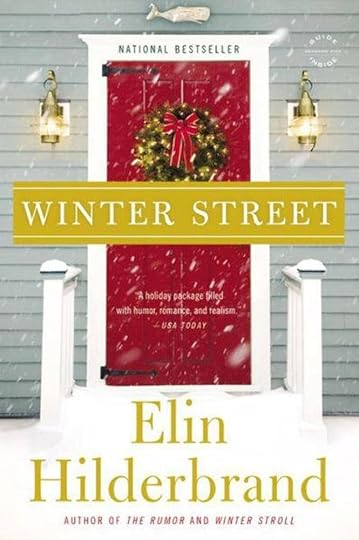
Despite listening to her podcast (Books, Beach and Beyond) occasionally and hearing about her for years, I hadn’t read Elin (pronounced like Ellen) Hilderbrand (notice the r in the middle) before. So since Winter Street came up on a lot of best-of Christmas reading lists—and people love her—I bought a copy and settled in with it in early December. But Winter Street is not one of her best-rated. So perhaps I would enjoy another one of her books better? Because I wasn’t really impressed with this one. I found it cheesy and unbelievable, which is normally okay for this genre, but not—I thought—in an enjoyable way. I kept wanting to like it, but it never lifted off or peeled me away from my real life, nor was I impressed with the actual writing or plotting.
Kelley Quinn and his ex-wife Margaret have four grown children. Kelley runs a bed and breakfast on Nantucket Island, but right before the Christmas festivities, he catches his wife Mitzi kissing Santa Claus, and not in a cute way. The daughter still lives at home, and her relationship is falling apart. One of the sons still lives at home and he has a secret he’s not telling. The eldest does not still live at home but he has legal and family troubles. And the fourth son has been deployed to Afghanistan and gone silent just as there are several casualties there. It’s a hot holiday mess involving the entire dysfunctional family.
Can I just interject here that a male character named Kelley was super confusing to my brain? I know that it can be a male name (I knew a guy named Kelly when I was a kid), but with so many characters being thrown at me at the beginning of this book, it took a really long time before I was settled that the dad was the Kelley. Just sayin’.
Yeah, I am just fine with reading light and breezy books that have a whole lot less in the poetic and literary ways than some of the other stuff I read. I like a break. I like to be whisked off for a little easy fun sometimes. That’s what I thought would happen with Hilderbrand and with Winter Street. Not so much. Sure, Winter Street was written better than Book Club Hotel, but this one didn’t really take me anywhere I wanted to go with people I really wanted to spend time with. The hotel wasn’t very cozy and the situations weren’t at all funny and the romances had almost zero sizzle. I was stuck with serious and “crazy,” and I’m not sure this was the right writing style for that. Maybe that’s always how Hilderbrand writes, and it’s just not for me. Unknown.
Maybe Winter Street’s not meant to be cozy at all, more like a Jodi Picoult or a Lessons in Chemistry kind of women’s literature. But no. It didn’t sit that way with me at all. Maybe I’m just confused. What did I just read? I didn’t love it, that’s for sure.
The New York Times called Hilderbrand “the bard of Nantucket and the doyenne of flip-flops, outdoor showers and pink sunsets” (Elisabeth Egan, “The Essential Elin Hilderbrand,” May 2021). And her books are “escape hatches for serious readers, bridges between mothers and daughters, cat’s cradles connecting friends. They’re beach reads with undertow” (ibid). So maybe I’ll have to try again with The Perfect Couple (which is also now a streaming series on Netflix) or with Summer of ’69 because it takes place on Martha’s Vineyard, especially if (when?) I am visiting the Institute of Creative Writing again. Those books also get slightly better reviews than her Winter Series.
The Winter Series is:
Winter StreetWinter StrollWinter StormsWinter SolsticeObviously, I am not going to be reading on in the series. But there are many who do. If you are into Winter Street, it would make sense to spend the next few holiday times reading the rest of the series, all snuggled up with a cup of tea next to the lit Christmas tree.

I find it very fascinating that Hilderbrand has an MFA from Iowa. An MFA from Iowa is like writing royalty, like a blessing from the high fairy godmother of literature, and quite frankly, you don’t usually see these grads going on to write beach reads and only beach reads. I kinda wonder what her story is and how she managed to buck the Iowa paradigm.
Most of the time, Elin Hildebrand writes Nantucket beach reads. Many of them follow the same characters, so many people read them chronologically, though I’ve heard that her writing improved over her career. She also had the podcast I mentioned above and is a mom and beach lover who lives in Nantucket. She also has a clothing and gifts brand based on her novels.
Her books are:
(They are broken into the Paradise and Winter series and the main series, which she calls “Summer” on her website.) They don’t have to be read in any order, technically.
The Beach Club (2000)Nantucket NightsSummer PeopleThe Blue BistroThe Love SeasonBarefootA Summer AffairThe CastawaysThe IslandSilver GirlSummerlandBeautiful DayThe Surfing LessonThe MatchmakerWinter Street (Winter #1)The RumorWinter Stroll (Winter #2)Here’s to UsWinter Storms (Winter #3)The IdenticalsWinter Solstice (Winter #4)Winter in Paradise (Paradise #1)The Perfect CoupleSummer of ‘6928 Summers (28 Summers #1)What Happens in Paradise (Paradise #2)Troubles in Paradise (Paradise #3)Golden GirlThe Hotel NantucketThe Five-Star WeekendSwan Song (2024)Hilderbrand just retired from writing, and is concentrating on being a “book influencer.”

“It’s time for actual self-improvement, which will start with bravery, and an abandonment of his bitterness” (p69).
“It had all been a golden dream, Margaret thought. If only they had realized it at the time” (158).
“You can give birth to a beautiful, perfect human being but requited love isn’t guaranteed for her—or for any of us” (p165).
“What a person does isn’t the same as who a person is” (p224).

No movie for this one, though there is a play by Justin Cerne.
December 20, 2024
Holiday Story Review: Afterward

I did find “Afterward” by Edith Wharton in a slim volume all by itself and read it that way, but it is really a short story, not a book or even novella. Ethan Frome is one of my favorite books, though I don’t think I have read much else of hers (like The House of Mirth or The Age of Innocence). (For that matter, Ethan Frome would make fine holiday reading, though it be bleak. It’s extremely snowy and cold.) Nevertheless, I don’t think “Afterward” is her finest. And because of the distance of years, it comes across as predictable and wordy. It’s not actually holiday reading at all, unless you want to read it for Halloween instead of Christmas.
A couple has met with success in America and wants to retire in the English countryside. They are looking for a place that is remote and haunted, and their friend finds them the house but is unsure about the haunting. For though they say it is haunted, no one knows exactly the rights of it, since no one knows they have met with the ghost until long after their haunting. Which is kind of weird as a set-up and also tantalizing. Of course, they move right in.
Let me begin by telling you how you could read this story. You could get an audio version, which would include free audio recordings online. You could read it online for free at a couple different public domain depositories, like Project Gutenberg. You could buy a Wharton collection of short stories and read it from there, but for this particular story you are going to have to buy a larger, more complete volume, like Collected Stories 1891-1910, the first of two volumes in the set. In retrospect, I would have preferred a volume of more than one story, but honestly the Dover Thrift version (which does not contain “Afterward”) looks more like my jam. So maybe I should have read it online. Then I wouldn’t have shelled out moola for a crappy, home-published venture that I would rather have not supported. I take no issue with self-publishing. I take issue with the way some people accomplish it, like with zero care and zero time and attention. If you are going to snag a copy, I would try the one from the Seth’s Christmas Ghost Stories series, (Seth is an illustrator, I guess,) which you can buy direct HERE or find round and about. (Don’t be fooled by some versions on Amazon that say they are Seth’s but aren’t).
And by now I have pretty much said it all. “Afterward” is an obvious ghost story. It does contain some things I will always love about Wharton, like atmosphere, tension, and the characters (so moody and dark even when they’re not). It is earlier work, so maybe it’s not her best. Or maybe some qualities that were okay (or better) at the time are lost on us now. Like novelty. Creepiness. And sheer girth as far as words go (super long, descriptive paragraphs, etc.). Lack of action, really. Old fashioned language and structure.
And we have mention of a “shyster lawyer.” I’m not totally sure if when and how she used it would be considered anti-Semitic. Technically, I believe in this context it refers just to a crap lawyer, but people have gotten the German word mixed up with some Shakespeare and this was probably after Wharton would have been writing. So probably not anti-Semitic but it would set off some warning bells if you threw it in your short story, today.
And how is this a Christmas story? It takes place at various times of the year. And when it is Christmastime, there’s not much to that. Seth might be stretching to find Christmas ghost stories in the public domain at this point.
It was okay. I didn’t hate it. Wharton can write and there are some fun scenes amidst all the lollygagging. It’s barely hanging on to that 4-star review. But I’d rather be re-reading Ethan Frome.
Holiday Book Review: Whiteout

While I read Whiteout by a bunch of authors, I was unimpressed. It probably didn’t help that I didn’t understand what I was reading until much later. But as the book went by, I was charmed by the idea of it as well as the spirit of it. And some sections were written better than others because they were written by different people. So, while I thought this book was not very well executed, I definitely took some things with me when I set it down.
Stevie has really messed up and now she’s not sure if she has a future with her girlfriend Sola. She’s especially in the dark because she is grounded so bad she doesn’t have any way of contacting Sola to apologize. Maybe, just maybe, the plan she already had in place to finally let Sola know just how much she loves her will win Sola back. But just as all their friends are coming together with pieces of the grand plan to make it happen, snow descends on a wholly unprepared Atlanta, leaving unlikely couples stranded all over the city.
The authors of this book are well-known authors from other books: Dhonielle Clayton (The Belles series), Tiffany D. Jackson (Allegedly), Nic Stone (Dear Martin and Clean Getaway), Angie Thomas (The Hate U Give and Concrete Rose), Ashley Woodfolk (The Beauty that Remains and When You Were Everything), and Nicola Yoon (Everything, Everything and The Sun Is Also a Star). More importantly, they are all black women. They worked together to write Blackout, which was published in 2021, a combination of their writing to represent a variety of Black teen relationships in the middle of a power outage in New York City. I’m not sure the structure is exactly the same as 2022’s Whiteout (which we’ll address in a moment), but Blackout explores the same themes. While they are spiritual sisters (a term I heard referring to Jumanji and Zathura years ago), the two books are standalones.
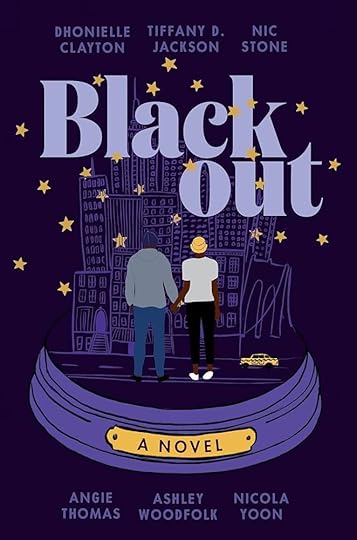
Let’s start with a quote from another reviewer before I tell you all the ways I had trouble with this book: “I just want everyone to understand that I completely get what the authors were attempting to do with this book; however, I think that this book needed a little more work in terms of execution. Black love representation is important, but I also believe that having that representation doesn’t automatically make it a 5 star book” (Bookishrealm on Goodreads about Blackout). Yeah, that’s pretty much exactly where I ended my experience with Whiteout. Because I did feel it gave voice to experiences that are not often heard, at least not in the forefront and not in chorus and not authentically. And I also felt I learned from the story and all the different characters. I felt I had walked, you know, like a tenth of a mile in their shoes. However, I wish it had just been a better book in so many ways.
After reading maybe half, I wrote the following note: “It’s so bad. Sorry. I like the structure idea. Get it that it’s supposed to be a rainbow of Black teen love/relationships, but it’s just so bad. Some sections worse than others.” It is worth noting, however, that no matter how bad parts were or how much I totally didn’t like the main character or how predictable or cheesy things might have been (it is a romance), the end had me welling up with tears. It was pretty sweet. (It might have helped that the section that I’m pretty sure was by Nicola Yoon had me in a better mood by then.)
Let’s talk about the structure, shall we? Whiteout has one main plot running through it, which is the one I summed up above with Stevie and Sola. But since there are friends left trapped in the storm around the city as they each work toward Stevie’s big surprise, we leave Stevie (and once Sola) to hear from them. And each time we hear from one (or two) of them, we get a different author telling their snowstorm love story. There are people online who have guessed who wrote each section, but I really couldn’t say. It’s actually a really cool idea.
However. Two major things (and I won’t go into the minors). One: Stevie is miserable. I was annoyed with her voice and her behavior from the very first page and she never changed my mind. I almost put the book down after maybe three pages because I couldn’t imagine spending hundreds of pages with her insufferable self. I am not alone. She’s really self-absorbed and even more pompous than self-absorbed (and therefore treats everyone around her (from her family to total strangers) like poop). Two, the stories-within-the-story are super repetitive. It’s like the authors didn’t check with each other and then the editor wasn’t like, “Hey, funny thing, a few of you basically wrote the same story. So we’re going to have to change all but one of them.” Again, totally not alone on how I feel here, and no it’s not fun to keep reading the same plotline with different characters.
There are some YA books (same for MG and children’s) that should never land in an adult’s hands because they lack the quality, the universality, and the maturity that can span audiences. I suppose that this is true here. If you are YA or even new adult (since the characters are from upper high school to early college), you may find this great reading because you are just not quite where I am now. Like I said, there are many other books that just fall flat when read outside of their target audience. But there are also many books that can be read by a wider range of people because they are great stories and/or great writing. Obviously, you know where I think Whiteout lands. At least until that ending. I guess part of my disappointment comes from the value I do see in this book. If it were only more accessible…
There are some really cool things. Love the Easter eggs that cross “stories.” I think the feel of it, overall (and stronger in some parts), is kind of amazing. I was transported not only to this day and night in an Atlanta snowstorm, but also immersed in the world—the feelings and thoughts?—of these urban Southern, Black teens and young people. At times it was mesmerizing. But then ol’ Stevie would come back, and I’d be like, “Why am I still here?”
Because someone else somewhere is definitely going to appreciate this book. Someone is going to felt heard and seen. Someone is going to have a great time, and maybe a great cry, reading it. It might be you. But there might be another book out there that has done the same things with great storytelling (a likeable, relatable MC) and better planning/editing. Until the bookshelves are brimming with those, well, there’s Blackout and Whiteout.
December 11, 2024
Book Review: When Among Crows
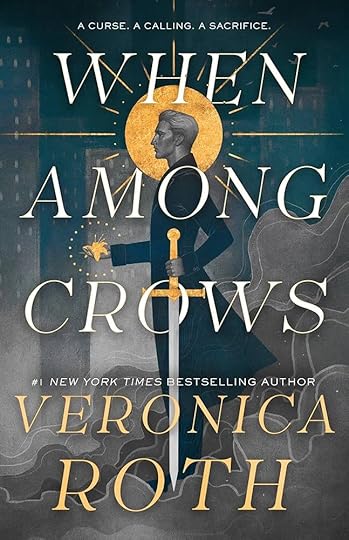
When Among Crows entered my personal library when I attended a Halloween season reading event featuring a few authors of horror. I chose the book that looked less scary as my “with ticket” book. Or maybe I chose it because it was by the most famous author there, one that I recognized. But then I didn’t know if I’d ever read it, because it is horror. When Halloween actually came around, however, I had just enough time to read through a couple of the horror novellas that were accumulating on my shelves. And my experience with this book was mixed. It’s not the best thing Veronica Roth has written. But there is some heart there, something interesting going on. I liked it okay. I found some aspects disappointing.
When the Slavic people came from Europe to America, they brought some of their magic—and magical creatures—with them. Which means cities like Chicago are actually crawling with dangerous, powerful beings who hide in plain sight. Dymitr is looking for Baba Yaga. He has procured a magical object that lasts only 24 hours, and he thinks he knows of someone who wants it really bad and can lead him to Baba Yaga. But with only one day and the city churning with subversive danger, does Dymitr have what it takes to survive, let alone get whatever it is he came for?
When Among Crows is part of a fad of horror novellas. When someone on the author panel at another author event mentioned this trend, it was like canisters clunking into place to unlock a reality in my brain. I had already seen this trend happening, but I hadn’t truly seen it. In fact, even though I don’t really read horror, I already had a few horror novellas sitting at home, including this one. You interested in reading short horror? (It’s not super scary, a little bloody.) When Among Crows clocks in at 163 roomy pages. You could read it in one sitting if you had that kind of time.
What did I like? I liked the characters. I liked the setting. The premise showed a lot of promise and I was drawn in right away. In the end, I was disappointed because I wanted a book with these characters, these ideas, and this plot to be better than what I ended up reading. Because I enjoyed all of those things, many of the details of this gritty, Polish dark fairy tale underbelly of Midwestern America. (I’m not super into grit, but this was a cool and interesting place to explore, even so.) The magic system worked. The writing was fine. (We’re building a world and telling a story, not playing with words or format.)
So why was I disappointed, specifically? Let me list the ways. Present tense doesn’t work for it, especially since the POV shifts too often and randomly into different people’s heads. There is some tension, but it doesn’t build as intended because of some of the other reasons I’m about to share. There is actually too much mystery, like in a way that you occasionally feel lost or like there is more information needed to keep up. The romance (in the background) comes completely out of the blue. Sometimes the plot moved forward based on things I wasn’t buying (like why did Nico jump in and help?). And where did one of the characters go, in the end? That was weird. She was used to flesh out the plot and one of the characters, but you can’t just leave us dangling, Roth.
Ultimately, it felt like a book that Roth wanted to write out of a deep interest and with a cast and setting that are lush and exciting. But it also felt like a book that was not yet out of the development stage when it went home with me, like it was rushed. Honestly, I’m not sure a novella was the right length for this story at all, but even with the restrictions of the current fad, it could have been executed much better.
Then again, if you are interested in this specific Polish-Midwest fairytale underground thing (complete with monster-hunting holy warriors whose spine houses their swords) and themes of pain and breaking from your nurture to do what is right, then this won’t set you back much. And, according to the 3.72 rating on Goodreads, you might even like it. I did, I was just also disappointed.

Veronica Roth is best known as the writer of the YA sci-fi Divergent trilogy (Divergent, Allegiant, Insurgent) and, I suppose, the movies based on it. She lives in Chicago, which makes sense, and it’s fairly apparent she has Polish roots based on the inscription she signed into my book, which is “Na zdrowie” and means cheers or to health or even bless you. (There’s also a Polish saying as an epigram, which translates as “When among crows, you must caw as one.)
Her books are
Divergent (Divergent #1)Insurgent (Divergent #2)Allegiant (Divergent #3)Four (stories from the Divergent world)Carve the Mark (Carve the Mark #1)The Fates Divide (Carve the Mark #2)The End and Other Beginnings (stories)Chosen OnesPoster GirlArch-ConspiratorWhen Among CrowsThere are also a bunch of Divergent-world stories, but they might all be in Four. Her ratings tend to hover between 3.5 and 4, except for Divergent, which was her first book and really put her on the map.
Her website can be found HERE.

“There’s nothing magic likes better than the great hollow of a debt” (p1).
“’Keep your hopes up, Aleksja,’ he says. ‘Disappointed hopes won’t be any worse than what awaits you now.’ / He has a point” (p40).
“’Don’t pretend,’ she said. ‘We cannot rid you of your doubt if you hide it. You must bring it to the light’” (p107).
“Do not trust your eyes more than you trust your duty…” (p108).

There is no indication that this is being made into a movie or a TV show, at least not yet. DESPITE what you may read on AI. AI is getting confused between When Among Crows and a Kickstarter project for a movie called Amongst Crows which has NOTHING to do with Roth’s novella.
December 6, 2024
Best Books of 2024
I was going to wait until the beginning of 2025 to post about the supposed best books of 2024, but it seems that by then I will have missed some sort of train. So here we go. Hugs to all those books yet to emerge as a favorite, in the next four weeks or so. It was too little too late, I’m afraid.
Let’s start with something no one else will have: my best reads of 2024. Most of these books were not published in 2024 or even 2023, but they just happened to be read by me this year because of a thousand different things. There is no way that I can keep up with all the top-bound, new titles in a year, especially since I am a very cross-genre reader, so this list isn’t going to resemble the ones you’ll see below. They are in the order of when I read them.
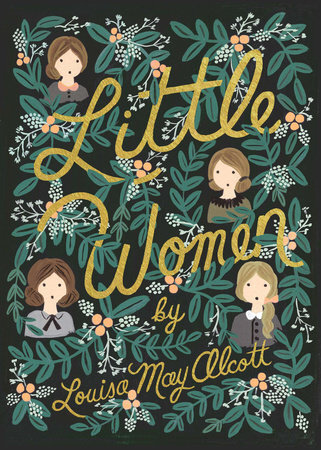


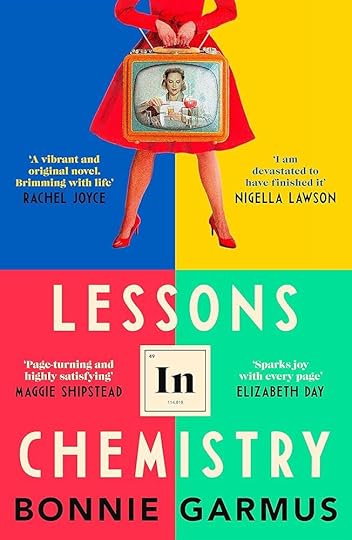
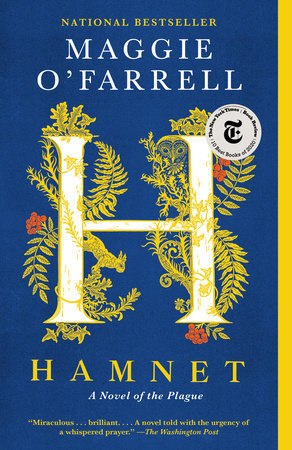
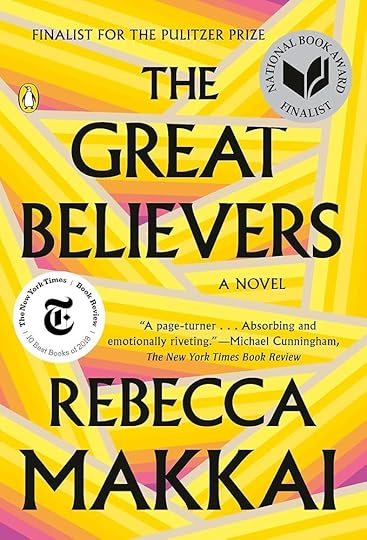


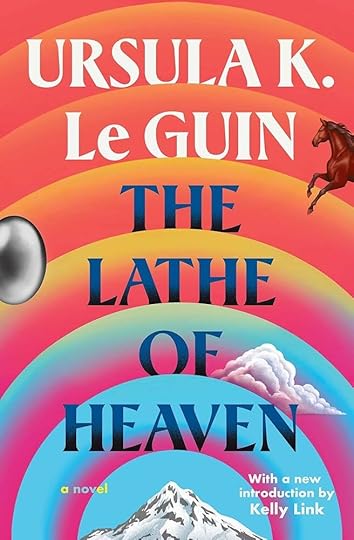





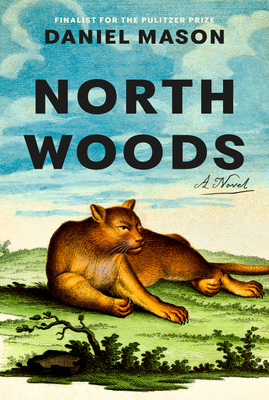

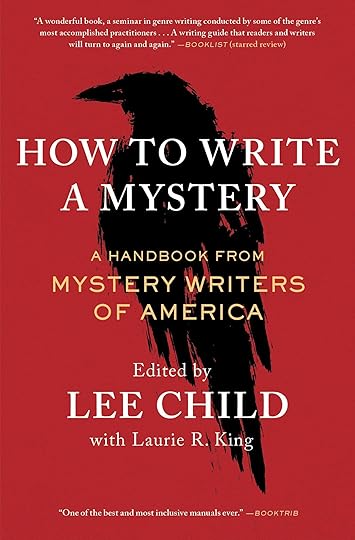
 Little Women
, Louisa May AlcottThe Smitten Kitchen Cookbook, Deb Perelman
Prophet Song
, Paul Lynch (2023)
Lessons in Chemistry
, Bonnie Garmus (2023)
Hamnet
, Maggie O’Farrell
The Great Believers
, Rebecca Makkai
Firekeeper’s Daughter
, Angeline Boulley
Stay with Me
, Ayobami Adebayo
The Lathe of Heaven
, Ursula K. LeGuin
Universal Love
, Alexander WeinsteinMidnight’s Children, Salman Rushdie
Cat’s Cradle
, Kurt Vonnegut
Martyr!
, Kaveh Akbar (2024!)
The Chocolate War
, Robert Cormier
North Woods
, Daniel Mason (2024!)
Harold and the Purple Crayon
, Crockett JohnsonHow to Write a Mystery, Mystery Writers of America
Trail of Lightning
, Rebecca Roanhorse
Little Women
, Louisa May AlcottThe Smitten Kitchen Cookbook, Deb Perelman
Prophet Song
, Paul Lynch (2023)
Lessons in Chemistry
, Bonnie Garmus (2023)
Hamnet
, Maggie O’Farrell
The Great Believers
, Rebecca Makkai
Firekeeper’s Daughter
, Angeline Boulley
Stay with Me
, Ayobami Adebayo
The Lathe of Heaven
, Ursula K. LeGuin
Universal Love
, Alexander WeinsteinMidnight’s Children, Salman Rushdie
Cat’s Cradle
, Kurt Vonnegut
Martyr!
, Kaveh Akbar (2024!)
The Chocolate War
, Robert Cormier
North Woods
, Daniel Mason (2024!)
Harold and the Purple Crayon
, Crockett JohnsonHow to Write a Mystery, Mystery Writers of America
Trail of Lightning
, Rebecca RoanhorseHave you ever seen a more eclectic book list? Moving on…
There are some titles that we just haven’t been able to escape this year. I have seen these everywhere and they have been much talked about. Whether they lived up to the hype is for you to decide, but these are quintessential 2024 bookstore front-and-centers. I know I’ve missed a few.
James, Percival EverettNight Watch, Jayne Anne PhillipsIntermezzo, Sally RooneyFunny Story, Emily HenryBe Ready When Luck Happens, Ina GartenCher: The Memoir, CherTaylor Swift Style, Sarah ChapelleCreation Lake, Rachel KushnerThe Familiar, Leigh BardugoBright Sword, Lev GrossmanMy Favorite Thing Is Monsters, Emil FerrisAnita de Monte Laughs Last, Xochitl GonzalezAll Fours, Miranda JulyGood Material, Dolly AldertonColored Television, Danzy SennaThe Empusium, Olga TokarczukThe Grey Wolf, Louise PennyThe Spellshop, Sarah Beth DurstThe God of the Woods, Liz Moore Wandering Stars , Tommy Orange (*)The Great Divide, Christina HenriquezThe Reappearance of Rachel Price, Holly JacksonThe Demon of Unrest, Erik LarsonThe Age of Magical Thinking, Amanda MontellYou Like It Darker, Stephen KingHoney Witch, Sydney J. ShieldsThe Midnight Feast, Lucy FoleyI’m Mostly Here to Enjoy Myself, Glynnis MacNicolCue the Sun!, Emily NussbaumWorld Travel, Anthony BourdainEveryone in My Family Has Killed Someone, Benjamin StevensonThe Briar Club, Kate QuinnThe Grandest Game, Jennifer Lynne BarnesBear, Julia PhillipsEmily Wilde series, Heather FawcettThe House Keeper’s Secret, Iona GreyThere Are Rivers in the Sky, Elif ShafakThe Truth According to Ember, Danica NavaADHD Is Awesome, Kim and Penn HoldernessThe Life Impossible, Matt HaigHere One Moment, Liane MoriartySomewhere Beyond the Sea, TJ KlunePlayground, Richard Powers North Woods , Daniel Mason ***Ministry of Time, Kaliane Bradley (*)The City and Its Uncertain Walls, Haruki MurakamiSame Bed Different Dreams, Ed Park *Rental House, Weike WangThe Rivals, Jane PekThe Women, Kristin HannahThe Serviceberry, Robin Wall KimmererThe Mirror, Nora RobertsWar, Bob WoodwardThe Boyfriend, Frieda McFaddenFrom Here to the Great Unknown, Lisa Marie PresleyThe Message, Ta-Nehisi CoatesWhile the list above are 2024 books that were trending, here are some other books (written before 2024) that were trending (still or again) in 2024. Sometimes this was due to a movie release. Sometimes it was due to winning a 2023 award or being on the best-of-2023 lists. Sometimes it was other things.
Tom Lake, Ann Patchett (*)Murdle, Vol. 1, G. T. KarberA Court of Thorns and Roses (ACOTAR) series, Sarah J. MaasFourth Wing series, Rebecca Yaros *Have a Beautiful, Terrible Day, Kate BowlerThe Sympathizer, Viet Thanh NguyenThe Three-Body Problem, Cixin LiuErasure, Percival EverettShogun, James ClavellDune, Frank HerbertKillers of the Flower Moon, David GrannThe Bee Sting, Paul MurrayHell Bent, Leigh BardugoWeyward, Emilia HartScythe, Neal ShustermanPiranesi, Susanna ClarkeThe Heartstopper series, Alice OsemanThe Heaven and Earth Grocery Store, James McBrideChain-Gang Allstars, Nana Kwame Adjei BrenyahYellowface, R. F. KuangDemon Copperhead, Barbara Kingsolver Trust , Hernan Diaz *Babel, R. F. KuangThe Housemaid, Frieda McFaddenHillbilly Elegy, J. D. VanceThe Body Keeps the Score, Bessel Van der Kolk It Ends with Us , Colleen HooverDog Man series, Dav PilkeyPachinko, Min Jin LeeThere are books that experts have decided are the best books of the year. To figure that out, I went to the many best-ofs lists that have already popped up, including ones that I looked at earlier in the year. Thanks to The New York Times, Barnes and Noble, The New Yorker, Kirkus Reviews, and Vulture for weighing in for us. It seems clear to me that James is THE book of the year.
James, Percival EverettAll Fours, Miranda JulyThe Mighty Red, Louise ErdrichGood Material, Dolly Alderton Martyr! , Kaveh Akbar **Swift River, Essie ChambersKnife, Salman RushdieLong Island Compromise, Taffy Brodesser-AcknerColored Television, Danzy SennaYou Dreamed of Empires, Alvaro EnrigueCold Crematorium, Jozsef DebreczeniEveryone Who Is Gone Is Here, Jonathan BlitzerI Heard Her Call My Name, Lucy SanteMadness, Antonia HyltonChallenger, Adam HiggenbothamReagan, Max BootThe Coin, Yasmin ZaherSay Hello to My Little Friend, Jannine Capo CrucetPhantasma, Kaylie SmithEntitlement, Rumaan AlamWind and Truth, Brandon SandersonThe Empusium, Olga TokarczukThe Wide Wide Sea, Hampton SidesModern Poetry, Dianne SuessAn Image of My Name Enters America, Lucy IvesThere’s Always This Year, Hanif AbdurraqibThe Book of Love, Kelly LinkThe Freaks Came Out to Write, Tricia RomanoIntermezzo, Sally RooneyAll the Colors of the Dark, Chris WhitakerLatinoLand, Marie AranaThe Light Eaters, Zoe SchlangerThe Grey Wolf, Louise PennyForest of Noise, Mosab Abu TohaThe Spellshop, Sarah Beth DurstGraveyard Shift, M. L. RioThe Burning Earth, Sunil AmrithOn the Calculation of Volume, Solvej BalleHealth and Safety, Emily WittWe Used to Live Here, Marcus KliewerThe Cinnamon Bun Bookstore, Laurie GilmoreThe Most Wonderful Crime of the Year, Ally CarterFunny Story, Emily HenryThe Antrhopologists, Aysegul SavasHenry V, Dan JonesThe Demon of Unrest, Erik LarsonThe Barn, Wright ThompsonRevenge of the Tipping Point, Malcolm GladwellThe Backyard Bird Chronicles, Amy TanMerlin’s Tour of the Universe, Neil DeGrasse TysonBe Ready When Luck Happens, Ina GartenKnight Owl and Early Bird, Christopher DeniseThe Most Boring Book Ever, Sanderson and KibuishiSkyshade, Alex AsterGames Untold, Jennifer Lynn BarnesNothing Like the Movies, Lynn PainterThe Achilles Trap, Steve CollEntitlement, Rumaan AlamHow to End a Love Story, Yulin KuangMoonbound, Robin SloanA Novel Love Story, Ashley PostonAnd now for the award winners!



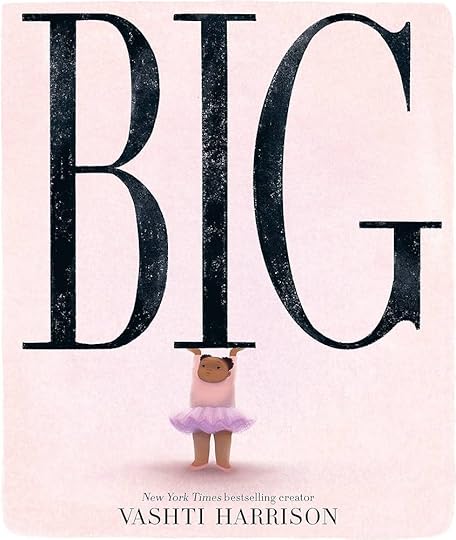




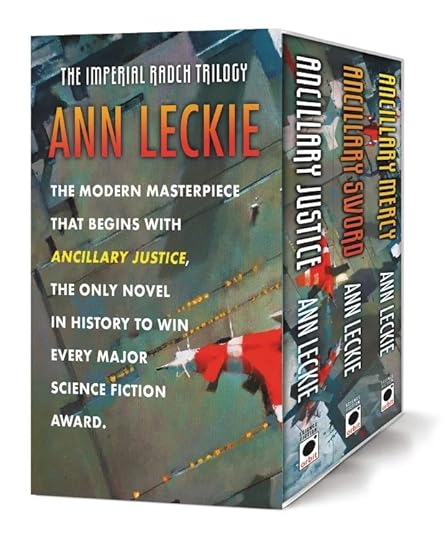


 James, Percival Everett (National Book Award)Orbital, Samantha Harvey (Mann Booker Prize)Night Watch, Jayne Anne Phillips (Pulitzer)Han Kang (The Vegetarian, etc.) (Nobel Prize)The Eyes & the Impossible, Dave Eggers (Newbery)Big, Vashti Harrison (Caldecott)I Am Homeless If This Is Not My Home, Lorrie Moore (Book Critics Circle)Some Desperate Glory, Emily Tesh (Hugo)Thornhedge, T. Kingfisher (Hugo novella)To Shape a Dragon’s Breath, Moniquill Blackgoose (Hugo YA)Imperial Radch, Ann Leckie (Hugo series)The Saint of Bright Doors, Vajra Chandrasekera (Nebula)
James, Percival Everett (National Book Award)Orbital, Samantha Harvey (Mann Booker Prize)Night Watch, Jayne Anne Phillips (Pulitzer)Han Kang (The Vegetarian, etc.) (Nobel Prize)The Eyes & the Impossible, Dave Eggers (Newbery)Big, Vashti Harrison (Caldecott)I Am Homeless If This Is Not My Home, Lorrie Moore (Book Critics Circle)Some Desperate Glory, Emily Tesh (Hugo)Thornhedge, T. Kingfisher (Hugo novella)To Shape a Dragon’s Breath, Moniquill Blackgoose (Hugo YA)Imperial Radch, Ann Leckie (Hugo series)The Saint of Bright Doors, Vajra Chandrasekera (Nebula)And lastly I’ll list the Goodreads Choice Awards, which are more of a popularity contest than an official judging of content. Which is kinda nice. Because sometimes those “real” awards can be way off the mark, frankly. So this is what the Goodreads plebes chose based on what they had actually read. (I read Ministry of Time, so far, and I can’t imagine this was the best sci fi available this year. But people really glommed on to it. So it goes.):


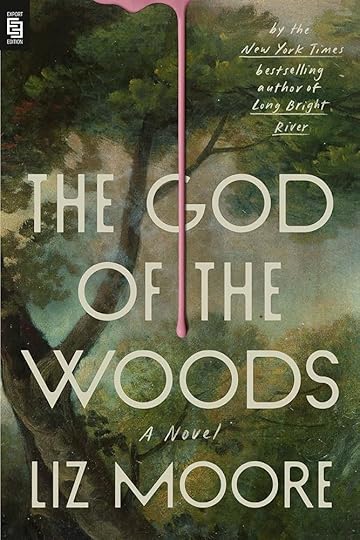
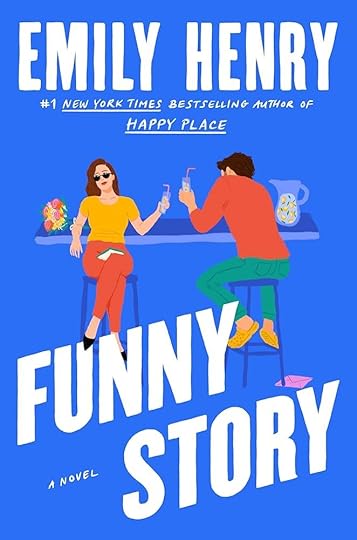
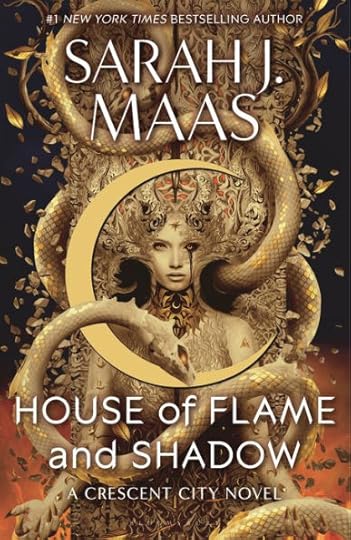
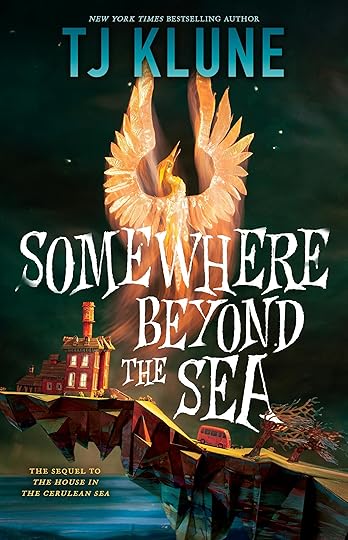
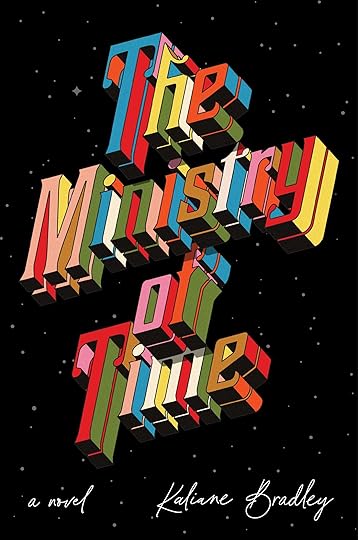

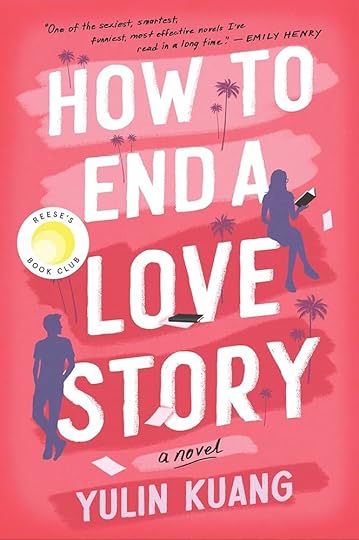

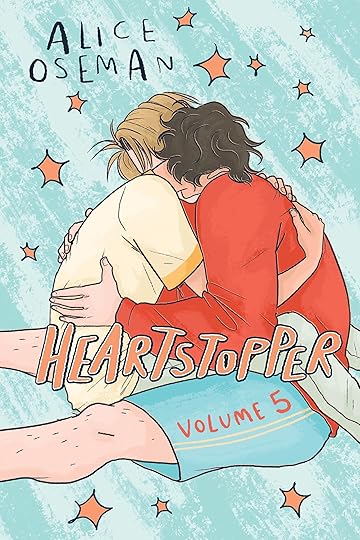


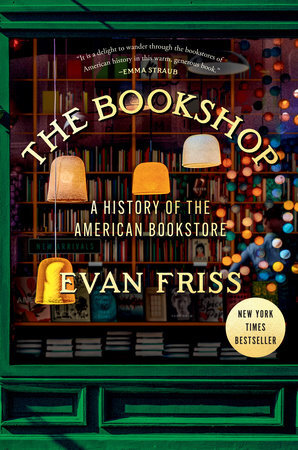 The Wedding People, Allison Espach (Goodreads Choice)The Women, Kristin Hannah (Goodreads Choice Historical Fiction)The God of the Woods, Liz Moore (Goodreads Choice Mystery/Thriller)Funny Story, Emily Henry (Goodreads Choice Romance)House of Flame and Shadow, Sarah J. Maas (Goodreads Choice Romantasy)Somewhere Beyond the Sea, TJ Klune (Goodreads Choice Fantasy)Ministry of Time, Kaliane Bradley (Goodreads Choice Science Fiction) (*)You Like It Darker, Stephen King (Goodreads Choice Horror)How to End a Love Story, Yulin Kuang (Goodreads Choice Debut)Ruthless Vows, Rebecca Ross (Goodreads Choice YA Spec Fic)Heartstopper, Vol. 5, Alice Oseman (Goodreads Choice YA)The Anxious Generation, Jonathan Haidt (Goodreads Choice Nonfiction)The Third Gilmore Girl, Kelly Bishop (Goodreads Choice Memoir)The Bookshop: A History of the American Bookstore, Evan Friss (Goodreads Choice History)
The Wedding People, Allison Espach (Goodreads Choice)The Women, Kristin Hannah (Goodreads Choice Historical Fiction)The God of the Woods, Liz Moore (Goodreads Choice Mystery/Thriller)Funny Story, Emily Henry (Goodreads Choice Romance)House of Flame and Shadow, Sarah J. Maas (Goodreads Choice Romantasy)Somewhere Beyond the Sea, TJ Klune (Goodreads Choice Fantasy)Ministry of Time, Kaliane Bradley (Goodreads Choice Science Fiction) (*)You Like It Darker, Stephen King (Goodreads Choice Horror)How to End a Love Story, Yulin Kuang (Goodreads Choice Debut)Ruthless Vows, Rebecca Ross (Goodreads Choice YA Spec Fic)Heartstopper, Vol. 5, Alice Oseman (Goodreads Choice YA)The Anxious Generation, Jonathan Haidt (Goodreads Choice Nonfiction)The Third Gilmore Girl, Kelly Bishop (Goodreads Choice Memoir)The Bookshop: A History of the American Bookstore, Evan Friss (Goodreads Choice History)
Book Review: City of Ghosts

This is a cute and spooky read for upper elementary and middle grades readers. It’s an easy read and is pretty pitch-perfect for the intended audience. For an adult reader, it’s a bit thin on the ground. But still cute. And still full of thoughtful thoughts and kid-problems. And hopefully the premise is intriguing, because it’s really similar to the trilogy I’m currently working on.
Cassidy drowned, but she was saved. Since then, she’s able to pull back the veil between the living and the dead and she has a new best friend who’s a ghost. It was already complicated being the daughter of paranormal experts and influencers, but now that she’s so different from everyone around her… Then her parents get the opportunity to make a paranormal TV series, and they have to head to Scotland to start filming right away. Did they mention that Edinburgh is one of the most haunted cities in the world? Which means the ghosts in Scotland are going to mean business much more than the ghosts Cassie’s encountered at home.
I was panicking about my comps (comparables) for the manuscript I was pitching at a conference after last-minute feedback that the ones I had weren’t right. I headed to a local bookstore with my husband and asked a bookseller for some help. Soon enough, half the booksellers were flitting around the store and heaping books into my arms. I took a few home, including City of Ghosts. I knew the age category was way off, but the premise was as close as it could get for that difference in age. So I was curious.
I read a chapter or two of each of the books and decided on my comps (you don’t have to read a book in order to use if for comps, but I was trying to get the vibes, at least) and decided this was probably too young. Nonetheless, I wasn’t sure, so I brought it along to the conference. Amidst the stress and busyness, this light, children’s chapter book was a perfect read for those fifteen-minute waiting times. And relaxing before bed. Because this book, for someone my age, is anything but scary. It’s cute and simple and predictable. But for a kid interested in reading ghost stories? This would be perfect because it’s accessible without being gory or terrifying.
Speaking of comps, the comps I’ve seen for City of Ghosts are way off. Stranger Things and Miss Peregrine’s Home for Peculiar Children are meant for a much older audience, and I don’t see any sort of crossover really happening, unless you’re someone like me who reads across many genres and way outside her age range. Stranger Things and Miss Peregrine are much heavier and intense than City of Ghosts because of the intended audience (which for those two are anywhere from YA to adult). Also more gore. More PDA. None of that is here. It’s spooky and it’s real, but it also has the necessary gentleness I would want in a book for a kid this age. I’ve seen it listed as middle grades and even YA, but I would say it’s young MG, if not elementary age. (The age of the MC is 12!) If you have a fourth grader who loves to read and wants something creepier, then this is it. Likewise for 7th grader, though they could be less of a reader.
The Cassidy Blake series is


 City of GhostsTunnel of BonesBridge of Souls
City of GhostsTunnel of BonesBridge of SoulsIt looks like the Cassidy Blake series is complete at a trilogy.
Here are the notes I took while reading: City of Ghosts is so very MG. Not all MG is like that. Some of the classics are a little more versatile, more universal, but this is a young character and a stripped down style that really works best for actual kids. City of Ghosts is the beginning of a trilogy, and while I enjoyed it, I don’t need to continue. I get the point. I read it because I was looking for comps and the premise is similar to my novel’s, but the tone is all wrong, like there is a world of difference between this type of MG and my type of YA. The book was fine, even for an adult who reads MG, but so stripped down. It weighs in at 285 pages with giant margins, large font, and ample space between lines. There is mild character development and straight-forward plots that keep the mysteries pretty obvious. While we get the perspective, ruminations, and problems (some metaphorical) of a twelve-year-old girl, they are kept hopeful and not tremendously complex. Which is all appropriate for a reader of this age. While labeled middle grades horror, I am reluctant to slap that tag on there. I think many adults would go straight in their minds to Scary Stories to Tell in the Dark or the jump scares of R. L. Stine. City of Ghosts is much more nuanced, almost allegorical, and while scary at times (and murder and child abduction are mentioned repeatedly), it’s still handled without grossness or gore or even that gut-knotting darkness. This is more of a tour de supernatural.
I cared. And it was cute. But at 45, I didn’t care that much and it wasn’t that cute. Also, more importantly, Schwab wasn’t especially careful about scene blocking, and there were several times that I couldn’t quite picture what was happening or what I was given didn’t quite work out in space and time. While I would not say this is a great book—even for a ten-year-old—I would recommend it for a kid looking for a spooky mystery or who comes right out and asks for “horror.” Plenty of people are going to find Cassidy charming and the setting intriguing and the world-building clean and clear. From there, it’s up to your imagination.
I would like to read some of Schwab’s work for older readers, especially, The Invisible Life of Addie LaRue.

For a long time, I have been confused. I thought that V. E. Schwab and V. C. Andrews were the same person. And then the mainstream popularity of The Invisible Life of Addie LaRue made me wonder. And finally, somehow it became clear to me that the author of Vicious was not the author of the stabby trade paperback Flowers in the Attic. Which I’m probably mis-remembering anyways and confusing it with Christopher Pike. I hated slasher horror, even as a teen.
V. E. Schwab is also Victoria Schwab, though I have seen the two names interchanged on covers of her books (my City of Ghosts says V. W. Schwab), so I’m not sure they are distinctive to genres or age groups, anymore. Schwab was born in 1987 and grew up in Tennessee. She went to school in St. Louis and was considering astrophysics when she changed paths to literature. She sold her first book, The Near Witch, to Disney in 2011. People really started noticing her with the publication of Vicious, a superhero revenge thriller. She continued to write and sell well until her 2020 The Invisible Life of Addie LaRue won awards and skyrocketed her fame (even during the Pandemic).
Notable works:


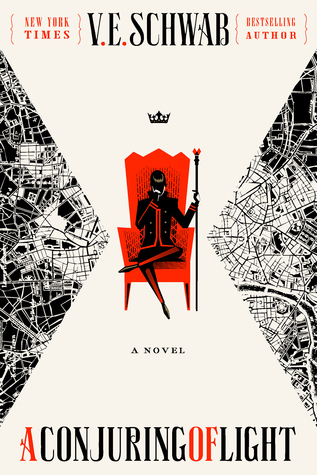

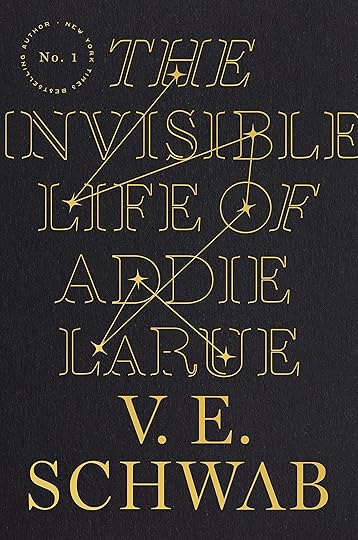 Vicious (fantasy, YA/new adult)A Darker Shade of Magic (Shades of Magic #1) (fantasy, adult)A Gathering of Shadows (Shades of Magic #2)A Conjuring of Light (Shades of Magic #3)The Invisible Life of Addie LaRue (fantasy/romance/historical, YA)First Kill (teen vampire TV series)
Vicious (fantasy, YA/new adult)A Darker Shade of Magic (Shades of Magic #1) (fantasy, adult)A Gathering of Shadows (Shades of Magic #2)A Conjuring of Light (Shades of Magic #3)The Invisible Life of Addie LaRue (fantasy/romance/historical, YA)First Kill (teen vampire TV series)Her website can he found HERE but it is currently under construction (December 2024).

“But the laughter makes space in my chest, clears out the fear and nerves as I reach for the Veil” (p12).
“Nothing happens until it happens. And then it’s already happening” (p56).
“There’s a reason people think they see ghosts in the dark, when lights and shadows can mess with your sight” (p62).
“’No shame in being scared,’ he counters. ‘But there’s a difference between being scared and being scared away” (p181).

Looks like it might have been optioned to CW in 2018 and then been moved to ABC, but there is little to no indication that this book series is currently being made into a movie or TV series. There is a City of Ghosts TV series which has nothing to do with this story.
December 5, 2024
Graphic Novel Review: Miles Morales Vol. 1: Straight Out of Brooklyn
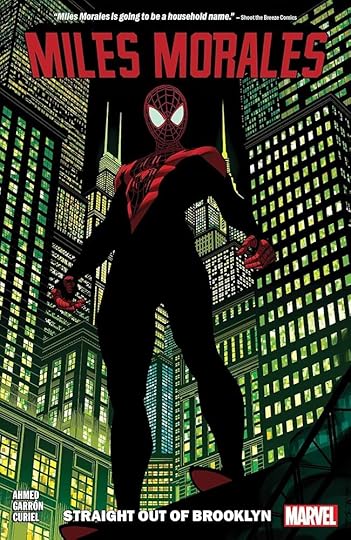
Is this even a graphic novel? It’s a slim, traditional comic serial, but then bound in bunches? I am not a comics reader usually (but I do read graphic novels), but Miles Morales came up in my search for comps for my newest novel and since I was inspired somewhat by Spider-Man (and Peter Parker—my favorite comic hero), I thought I would try it out. I also love the animated Spider-Verse movies (though I wasn’t a fan of getting to the end of the second one to encounter a to be continued). And even though I apparently chose the wrong place to start (even though I tried to figure it out), I was really impressed with this comic book/graphic novel. Maybe it was the best place to start because maybe it’s the best of the series as opposed to the first? I will be reading more. Except for a few mistakes (like a couple of hands that weren’t sized right), I loved the illustrations (drawing and inking, I guess) and the writing was witty and classic and kept me reading.
We pick up in the middle of the story here, but that’s comics for you. Miles is visited by Captain America, and together they are trying to find some missing kids. There are also appearances by Rhino and another superhero who I’d never heard of (though I’d heard of her family) and don’t know how she fits into the universe. Of course, I was disappointed in the lack of Spider Gwen, but I understand that in the comics they are just friends anyhow (which is not what they did for the movies, at least so far. Basically. Maybe that’s where it’s going, actually…) And now that I’m poking around online, I might want to read the Spider-Gwen comics, as well.
Here’s the order of Miles Morales books, as listed inside the covers of Straight Out of Brooklyn:
Miles Morales: The Ultimate Spider-Man, Ultimate Collection Book 1Miles Morales: The Ultimate Spider-Man, Ultimate Collection Book 2Miles Morales: The Ultimate Spider-Man, Ultimate Collection Book 3Spider-Man: Miles Morales Vol. 1Spider-Man: Miles Morales Vol. 2Spider-Man/Spider-Gwen: Sitting in a TreeSpider-Man: Miles Morales Vol. 3Spider-Man: Miles Morales Vol. 4Miles Morales Vol. 1: Straight Out of BrooklynMiles Morales Vol. 2: Bring on the Bad GuysMiles Morales Vol. 3: Family BusinessMiles Morales Vol. 4: UltimatumMiles Morales Vol. 5: The Clone SagaMiles Morales Vol. 6: All Eyes on MeI don’t know how chronological this list actually is, but chronological is what I was hoping for. And do the Ultimate Collections repeat anything? I dunno’. You can see that I picked up a book in the late-mid section. But again, maybe it’s just an especially good one? Maybe some of the books are less worth reading? And in a comics universe, you don’t have to read chronological, or completely, necessarily (unlike many book series). Even me, someone who is choosy with her DC and Marvel movies, understands enough to pick up what they’re laying down. Though there were also references I knew I wasn’t getting. Then again, my husband keeps an Avengers encyclopedia on the coffee table, so…
Also worth noting, this is the first book in the series above that is written by Saladin Ahmed and drawn by Javier Garron, though the artists change frequently throughout the titles. There are three in a row by this pair. (The writing is only done by two different authors, and this volume is the break.) Which is obviously going to make for some stylistic differences, right? Maybe they try to be consistent? I’m sure I would have favorites.
I don’t know how much I should say in this review since I have so little experience with reading comics. For a graphic novel, I thought it was engaging and visually exciting, just very much in the comic book style. I kinda roll my eyes at the typical anatomy of comic books (and the way the people’s clothes fit, amiright?), but this (maybe more modern style?, more YA?) is toned down from the comic book covers of my own teen years. Sure, every single person has a thigh gap and even their street clothes are basically painted on, but I appreciated the lack of lingerie and porn star doubles. At any rate, this book kept me engaged, which I definitely can’t say of many graphic novels. (My brand of ADHD hyperfocus doesn’t kick in for graphics as easily as it does for the written word.)
For myself, I am going to try to come up with the order for Spider-Gwen comics:
Edge of the Spider-Verse, Vol. 2Spider-VerseSpider-Gwen Vol. 0: Most Wanted?Web Warriors of the Spider-Verse Vol. 1: ElectroverseWeb Warriors of the Spider-Verse Vol. 2: Spiders Vs.Spider-Gwen Vol. 1: Greater PowerSpider-WomenSpider-Gwen Vol. 2: Weapon of ChoiceSpider-Gwen Vol. 3: Long-DistanceSpider-Man/Spider-Gwen: Sitting in a TreeSpider-Gwen Vol. 4: PredatorsSpider-Gwen Vol. 5: GwenomSpider-Gwen Vol. 6: The Life of Gwen StaceyOkay, I ended up taking that almost straight from Trevor Van As HERE. There are a lot more on his list, which goes through different iterations over time. He also has a list of best Spider-Man (Peter Parker) to read, HERE.
I love Spider-Man. He is such an iconic hero’s journey hero. An everyman. And his story is especially coming-of-age. There are such poignant moments—so big and epic—in his internal and external journey, and Miles Morales strikes me as the Spider-Man of a new generation. I love it. And I enjoyed this middle-of-the-series compilation of serials written by Saladin Ahmed, drawn by Javier Garron, inked by David Curiel and lettered by Cory Petit. I would like to catch up some more on Miles Morales (including the next movie, Spider-Man: Beyond the Spider-Verse, which is due out in March). With my current novel series being inspired by Spider-Man (and Scooby-Doo and Sherlock Holmes), I imagine I will do just that.
December 3, 2024
Book Review: Giovanni’s Room
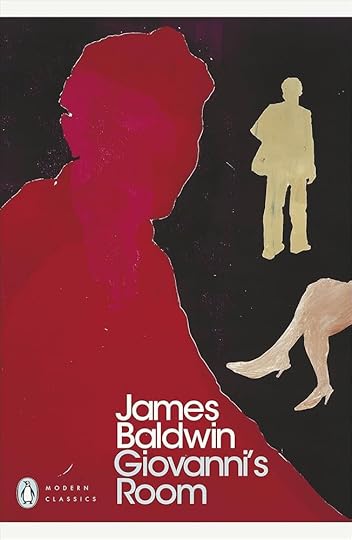
I can’t get away from references to James Baldwin. It seems he is a writer’s writer. And, unless there was a short story or essay somewhere along the line, I have never read him. Until now. I started with Giovanni’s Room simply because we were reading it for book club. Perhaps I should have read instead his Notes of a Native Son, The Fire Next Time, Go Tell It on the Mountain, or Nobody Knows My Name. But I suspect that one of his themes really shines in this book that doesn’t as much in the others, which is sexuality. Giovanni’s Room is a clear, clean book and I can see why his writing has endured and why modern writers would find something interesting in his autobiographical themes of sexuality, race, and politics even though he was writing in the 1940s-1980s. I thought it was a good book. Did I enjoy reading it? Maybe not so much.
For one, it is really alcohol-soaked. That’s not my main point, but I’m just going to go through my notes as they are on my notes page. I always have a hard time relating to people who live in a constant state of drinking and/or drunk. But more than that, the characters in this book are aimless. Many are gold diggers and childish. There is a sense of floating through life that is almost apathy. Or, put in another way, the main character, David (whose name is almost never said) is a very, very passive character. And selfish. And self-centered. Which fits right in with the Bohemian-ness of this book. I kept thinking of the song from Moulin Rouge with the line, “What do we believe in? Freedom, Beauty, Truth, Love.” Well, I’ve read enough books with Bohemian ideals and (even though I love Moulin Rouge), I find the worldview (including that you can’t fake it or it will kill you) to be false. (Also, you don’t really get to make choices, you just have to be who you are. See, I told you it was relevant to today.) So that was playing out as I was reading this, as well. And it’s not my cup of tea.
I guess my bottom line is this: Giovanni’s Room is great, clean writing, for sure. But the subject matter didn’t interest me (specifically this moneyed/impoverished, Bohemian life in 1950s Paris) and the pacing also didn’t do it for me. Paris, fine. It was a swift style of writing, but very little manages to happen. It gets dramatic, but not until near the end. Until then, Baldwin relies on us being moved emotionally as opposed to the story doing much moving. He relies on our sympathy or, in some cases, empathy. For some people in book club, the book was “raw” and “tough to read.”
Meanwhile, I hated the main character and pretty much everyone else in the book. No, everyone. They were all selfish and narrow-minded and I couldn’t find redemption in the apathy or in the ending. (I don’t know that we’re supposed to. But I like to.) I might have found something in Hella, but Baldwin’s women—at least in Giovanni’s Room—are terribly written. Also, any statements made about women in general are rough. I was like, this is the 1950s and these are largely gay men, but I still feel offended by that view, sir. Then I read on.
Note: there is a lot of French spoken by the characters in this book. Because it’s Paris. However, there is no translation, and in some scenes, there are not even contextual clues to figure it out. Either you already know French, or you have to look it up—or just ignore it because you’re annoyed and skip it. I know quite a bit of French but still looked some of it up. I just don’t understand why when a book is in one language it doesn’t always have footnote translations for any other language. I don’t get it.
Another note: it was not illegal to be gay in Paris at the time, though it was in the U.S. It was, however, still discouraged and sometimes persecuted.
The structure of the book is also of note. It begins with the end, so even though there is a mystery element to it, we know ultimately that Giovanni will be headed to his death. This creates tension that otherwise wouldn’t be there. Creates plenty of questions that aren’t evident from the story when told chronologically. However, after the ending-as-beginning, we dive into David’s teen years, his relationship with his dad, and his first sexual encounter with a boy. While this is good writing and it does develop things for the main character, I quickly lost sight of this chapter; it receded in my memory until it felt like another book altogether, and it made me wonder if it belonged there at all. Fleshing out David’s relationship with his dad and his memories of Joey during the meat of the story would have been more impactful, I think, would have stayed with us better. As a writer, this is exactly the kind of scene that is so difficult to cut—to even see that it needs to be cut—but it’s precisely the kind of darling that needs to go, because while it is part of David’s story as a character (and thematically relevant) it is not part of the story (the narrative) that Baldwin is telling here.
Some of the themes of this book: home, both physical/literal home and also the body as home. Or people. Also, shame. I saw a lot of metaphor with Giovanni’s actual room, with how messy and filthy it was. Dirt=shame. Also, creating a dual life. David is accused, at one point of being “the kind of man who is tempted to put himself in prison in order to avoid being hit by a car.” Officially, David and Giovanni are bisexual, though I don’t think that was the kind of terminology or even category that people were using in the 50s. And honestly, I think David had more of a problem with monogamy and with lying to himself than having a problem with sleeping with women. This is more about transactional sex and with having the freedom to do with one’s own body what one would like to do with one’s own body. Without violence. Without ostracizing. Without having to relinquish all other dreams you might have. While dealing with your own shame and your own judgement.
As for the ending, in our group of twenty or something there were a number of interpretations (though only one hopeful one, and I believe she was hanging on to hope because it suited her, not because it was there in the reading). There is an ending. There is also a lot of space for interpreting the ending. There are clues, like the “dreadful weight of hope” and the tour of the rental house where David keeps apologizing for his messes. (!) But ultimately, even if we feel we can winkle out the direction the story is moving, we don’t know for sure the details of what happens after THE END. It makes it an interesting book for study. It would lead to good discussion in a class. Or in a literary book club. As my buddy Doug cleverly said in discussion, “Your life’s not over, your book’s over.”
So yeah, this was a good book and a short read, an emotional journey full of things to think about. It’s clear and clean and leads to plenty of discussion. I think there are a couple literary missteps but I’m sure there are plenty of readers who would argue those points with me. Also, I could tell the whole time that I was reading great writing, but the subject matter (Bohemian ideals) and setting just wasn’t doing it for me. It’s a classic by a writer’s writer and it’s only 169 pages. Also, if you have suspicions you might be living a lie, perhaps it’s just the right read to make you think while it rips your heart out of your chest for you to examine. I just wouldn’t want to take David as any sort of hero.

James Baldwin was a reader and was not formally trained, but became (and still is) a very respected (and controversial) writer of essays and novels, largely autobiographical about being Black, politics, and sexuality (though not at the same time, which is why all the characters in Giovanni’s Room are white—because race would have confused the themes.) He was born in 1924 in Harlem and died in 1987, an expatriate in France. He had eight siblings, and his mother married a preacher. Baldwin became a preacher as a teenager, but didn’t pursue that as he grew older. He had been writing since he was a child and settled in Greenwich Village where he wrote for journals and magazines. Eventually he moved to Paris and then became a “commuter,” living in New York, New England, France, and Turkey.
His works include:
Go Tell It on the MountainGiovanni’s RoomThe Fire Next TimeIf Beale Street Could TalkGoing to Meet the Man (short stories)Notes of a Native Son (nonfiction)Nobody Knows My Name (nonfiction)No Name in the Streets (nonfiction)Native Son (nonfiction)
“And these nights were being acted out under a foreign sky, with no one to watch, no penalties attached…” (p5).
“…for nothing is more unbearable, once on has it, than freedom” (p5).
“Fathers ought to avoid utter nakedness before their sons” (p17).
“He wanted no distance between us; he wanted me to look on him as a man like myself. But I wanted the merciful distance of father and son, which would have permitted me to love him” (p17).
“…a real decision makes one humble, one knows that it is at the mercy of more things than can be named—but elaborate systems of evasion, of illusion, designed to make themselves and the world appear to be what they and the world are not” (p20).
“…it takes strength to remember, it takes another kind of strength to forget, it takes a hero to do both” (p25).
“Men—not just babies like you, but old men, too—they always need a woman to tell them the truth” (p69).
“Whether he is with others or not, he is certainly alone” (p113).
“’One of these days,’ he said. ‘Everything bad will happen—one of these days’” (p116).
“Well, isn’t it true? You don’t have a home until you leave it and then, when you have left it, you never can go back” (p116).
“You do, sometimes, remind me of the kind of man who is tempted to put himself in prison in order to avoid being hit by a car” (p117).
“And at moments like this I felt that we were merely enduring and committing the longer and lesser and more perpetual murder” (p118).
“’It’s cold,’ she said, ‘out here in the Old World.’ / ‘Well. It’s pretty cold out there in the New One, too,’ I said. ‘It’s cold out here, period’” (p134).
“What kind of life can two men have together, anyway?” (p142).
“…it had not occurred to me until that instant that, in fleeing from his body, I confirmed and perpetuated his body’s power over me” (p144).
“’But listen,’ I said to Hella, ‘he was just a disgusting old fairy. That’s all he was!’ / ‘Well, how in the world do you expect the people who read newspapers to know that?’” (p151).
“’There’s a difference between little boys and little girls, just like they say in those little blue books. Little girls want little boys, but little boys—!’ She snapped her compact shut. ‘I’ll never again, as long as I live, know what they want. And now I know they’ll never tell me. I don’t think they know how’” (p165).
“…how you love to be guilty!” (p164).
“I look at my sex, my troubling sex, and wonder how it can be redeemed, how I can save it from the knife” (p168).
“I move at last from the mirror and begin to cover that nakedness which I must hold sacred, though it be never so vile, which must be secured perpetually with the salt of my life. I must believe, I must believe, that the heavy grave of God, which has brought me to this place, is all that can carry me out of it” (p169).
December 2, 2024
Holiday Book Review: The Book Club Hotel
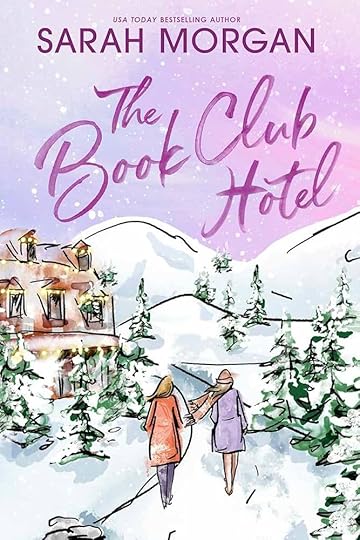
When asked at book club if I would read another book by this author, my answer was “No.” However, reading this Christmas cozy really got me wondering about possible (probable?) authors out there who write cozies but with a good (or great?) writing style. Because to tell you the truth, The Book Club Hotel by Sarah Morgan was fun to read (even with its awful cover). Relaxing for both my brain and my emotions. If it hadn’t been for how repetitive and over-wordy it was, I wouldn’t have minded the cheesy so much. I mean, in most ways it really delivered on its promises: it was crammed full of Christmas, cozy things, gentle things, things we all might only ever dream about. Lack of real drama. Just a gentle read about women’s friendships in an idyllic Vermont hotel at Christmastime. With some manly eye candy and a PG rating.
Hattie moved to Vermont from England with her husband to start a hotel when they were newlyweds, and now that he has died, she’s on her own to raise a child and manage the hotel. But when three middle-aged, college-friend women visit pre-Christmas for their annual book club week away, Hattie’s life is going to tangle with theirs in ways that puts a finger on all their problems. Erica is successful, single, and happy about it, but is she willing to disrupt her contentedness when something better—and more dangerous—comes along? Claudia has lost both her long-term relationship and her job, and doesn’t have a clue where she’s headed, now. Anna has a perfect picture life as a stay-at-home mom that is about to be blown apart by empty nesting. Meanwhile, Hattie has gone and kissed the boy next door and is wondering if she has ruined her one, good friendship.
It’s long. A women’s fiction/romance/cozy seems a little bit much to me at 368 pages. But maybe not? I have a theory that when Morgan wrote this, publishers were still looking for heft. (That trend has now reversed.) I mean, she almost pulls it off by having four POVs/protagonists. But because of the genre she doesn’t have to dig that deep and the plotlines are simplified, so she just ends up writing the same thing over (and over) again. Like whole paragraphs and pages are repeated. Many concepts, personality quirks, and internal thoughts: also repeated. I was like, sigh, I do not need to hear this again, thanks. I actually crossed out a few lines and paragraphs. I couldn’t help myself. It felt either boring or patronizing, and I wondered if it was also a lack of editing. In other words, this book could have been much tighter.
It was, however, very cozy. If you made a list of things that work in a Hallmark movie, especially a Christmas Hallmark movie, Morgan wedged it in here somewhere. The small town. The Christmas décor and traditions. A precocious child. (A little too precocious in my opinion.) A few hunky men who are also very self-aware and emotionally mature. Life-long friendships. Food. Cooking. Books. A library and a bookstore. Snow and snow sports. A dog (instead of the alternative, a cat). Shopping. Dressing up. Family. Like all of it. And with four female POVs, she could have the city-dwelling, globe-trotting executive, the small business owner, the creative (chef), and the stay-at-home mom. There should be something here to relate to anybody. (I teared up a few times during the plotline that applied most to my life at this moment.)
There were some complaints at book club about having to suspend reality. We all accepted that suspending reality is what is expected for Hallmark movies and cozies alike, but some of us kept getting tripped up by just how idyllic most of it was. Even with their struggles (one per person), there was a lack of concern in the areas of finances and immigration status, specifically, that threw some of us off. For me, finances got me more. The way these women spent money was insane and it cost them absolutely nothing in anxiety. But I was expecting unreality. So that’s not what made me conflicted about my reading. As I said before, if it had been edited much tighter, I would have been okay with the adequate writing and the unrealistic cheese.
A few other notes. There are some strange Britishisms, because Morgan lives in London but writes largely about New York and the US (often California). Like “cookery” instead of “cooking.” And a lot of “brilliant”s. Doesn’t matter. I’m just saying. It was also too predictable for me. In a book like this, we should know from the beginning that everything will turn out fine and that the protagonist will find their way to the love interest, etc. But after the first four chapters (the introductory chapters for each POV, so essentially the first chapter), I knew exactly what was going to happen to each of these characters and what their end would be. A few ladies at group were surprised. Most of us were very not shocked by the twists and reveals. And since it took like 400 pages to get there… Speaking of which, the ending could have been more exciting. Maybe that’s not how cozies work? I was hoping for more of a romantic comedy ending where there’s some flash and bang and a small amount of tension that is dealt with ultimately with humor and a sudden interweaving of all the plotlines. This ending was more mellow and drawn out, though one of the characters had her catastrophe and climax within two chapters, so that was strange.
Ultimately, this is a very warm book. If you are into cozies or gentle women’s lit and want a Christmas read, look no further. This would be a nice place to try out Sarah Morgan, who is a prolific and well-selling author (and writes primarily Christmas and summer books). Also, if you don’t normally read this stuff but you want to give your brain a real break for the holidays, this one will take you away from reality for a few days. I did enjoy reading it. But I do think I can do better, next time. It was a little saccharine for me and the writing way too loose and repetitive, but I could see myself trying other books like it, for a break (like how I started my reading a romance on vacation tradition). If you have any well-written cozy suggestions for me, I have already been given the titles Legends and Lattes, The Spellshop, The House in the Cerulean Sea, and Piranesi, and also the authors Jenny Colgen and Mary Kay Anders.
If you find a British version, it’s titled The Christmas Book Club.

“Why is it that men become more attractive as they age and women become invisible?” (p103).
“Which just goes to show we don’t always know what’s good for us, because I can’t remember when I had more fun” (p279).
“She frequently told him that she loved him, but what mattered more was showing it. Making him feel how much she loved him. And it seemed she hadn’t done that” (p319).
“The most important thing is that the two of you are good at resolving problems” (p321).
“…but if life had taught her anything it was that if you shut out risk you also shut out happiness, and she was determined not to do that” (p344).
A BEST-OFS LIST OF COZIES:
Thought I would throw yet another best-ofs list out there. I have no idea if these are really cozies, but I found all the recommendations at various places on the internet, mostly other lists which I vetted and compiled. It seems cozy mysteries outweigh all the other titles. Perhaps because many cozies fit into the romance category? I dunno. Note: Many of these are the first books of series. Do with the list what you want.
(From what I can tell, a book is a cozy if it doesn’t have things that are liable to stress you out or get it an R or even PG-13 rating. Also, the main character is going to be an amateur, especially in mysteries. It has to be light-hearted. And basically, no blood, violence, sex, profanity. Though it seems to me there are plenty of tenets of the genre, as well (like small towns and kind humor and people with high EQs). Or maybe it isn’t a genre. It’s a descriptor that can be applied to a book in any genre.)
The Bookshop on the Corner, Jenny ColganThe House in the Cerulean Sea, TJ KluneLegends & Lattes, Travis BaldreeThe Spellshop, Sarah Beth DurstThe Windsor Knot, SJ BennettMimi Lee Gets a Clue, Jennifer J. Chow Pride and Premeditation , Tirzah PriceThe Quiche of Death, M. C. BeatonArsenic and Adobo, Mia P. ManansalaShady Hollow, Juneau BlackBoard to Death, CJ ConnorRemarkably Bright Creatures, Shelby Van Pelt The Guernsey Literary and Potato Peel Pie Society , Shaffer and Barrows **The Thursday Murder Club, Richard OsmanThe Life Impossible, Matt HaigVera Wong’s Unsolicited Advice for Murderers, Jesse Q. SutantoPractical Magic, Alice HoffmanStardust, Neil GaimanLittle Women, Louisa May Alcott **All Creatures Great and Small, James HerriotMr. Penumbra’s 24-Hour Bookstore, Robin SloanWe’ll Prescribe You a Cat, Syou IshidaThe Starless Sea, Erin MorgensternCold Comfort Farm, Stella GibbonsAnne of Green Gables, L. M. Montgomery ***84, Charing Cross Road, Helene HanffThe Very Secret Society of Irregular Witches, Sangu MandannaA Psalm for the Wild-Built, Becky ChambersUnder the Whispering Door, TJ KluneWhat You Are Looking for Is in the Library, Michiko AoyamaEmily Wilde’s Encyclopedia of Faeries, Heather FawcettThe Tea Dragon Society, Kay O’Neill The Storied Life of A. J. Fikry , Gabrielle ZevinThe Kamogawa Food Detectives, Hisashi KashiwaiThe Woman Who Walked in Sunshine, Alexander McCall SmithA Home in Mitford, Jan KaronHow to Age Disgracefully, Clare PooleyHowl’s Moving Castle, Dianna Wynne JonesThe Jane Austen Society, Natalie JennerMrs. Quinn’s Rise to Fame, Olivia FordBook Review: The Book Club Hotel

When asked at book club if I would read another book by this author, my answer was “No.” However, reading this Christmas cozy really got me wondering about possible (probable?) authors out there who write cozies but with a good (or great?) writing style. Because to tell you the truth, The Book Club Hotel by Sarah Morgan was fun to read (even with its awful cover). Relaxing for both my brain and my emotions. If it hadn’t been for how repetitive and over-wordy it was, I wouldn’t have minded the cheesy so much. I mean, in most ways it really delivered on its promises: it was crammed full of Christmas, cozy things, gentle things, things we all might only ever dream about. Lack of real drama. Just a gentle read about women’s friendships in an idyllic Vermont hotel at Christmastime. With some manly eye candy and a PG rating.
Hattie moved to Vermont from England with her husband to start a hotel when they were newlyweds, and now that he has died, she’s on her own to raise a child and manage the hotel. But when three middle-aged, college-friend women visit pre-Christmas for their annual book club week away, Hattie’s life is going to tangle with theirs in ways that puts a finger on all their problems. Erica is successful, single, and happy about it, but is she willing to disrupt her contentedness when something better—and more dangerous—comes along? Claudia has lost both her long-term relationship and her job, and doesn’t have a clue where she’s headed, now. Anna has a perfect picture life as a stay-at-home mom that is about to be blown apart by empty nesting. Meanwhile, Hattie has gone and kissed the boy next door and is wondering if she has ruined her one, good friendship.
It’s long. A women’s fiction/romance/cozy seems a little bit much to me at 368 pages. But maybe not? I have a theory that when Morgan wrote this, publishers were still looking for heft. (That trend has now reversed.) I mean, she almost pulls it off by having four POVs/protagonists. But because of the genre she doesn’t have to dig that deep and the plotlines are simplified, so she just ends up writing the same thing over (and over) again. Like whole paragraphs and pages are repeated. Many concepts, personality quirks, and internal thoughts: also repeated. I was like, sigh, I do not need to hear this again, thanks. I actually crossed out a few lines and paragraphs. I couldn’t help myself. It felt either boring or patronizing, and I wondered if it was also a lack of editing. In other words, this book could have been much tighter.
It was, however, very cozy. If you made a list of things that work in a Hallmark movie, especially a Christmas Hallmark movie, Morgan wedged it in here somewhere. The small town. The Christmas décor and traditions. A precocious child. (A little too precocious in my opinion.) A few hunky men who are also very self-aware and emotionally mature. Life-long friendships. Food. Cooking. Books. A library and a bookstore. Snow and snow sports. A dog (instead of the alternative, a cat). Shopping. Dressing up. Family. Like all of it. And with three female POVs, she could have the city-dwelling, globe-trotting executive, the small business owner, the creative (chef), and the stay-at-home mom. There should be something here to relate to anybody. (I teared up a few times during the plotline that applied most to my life at this moment.)
There were some complaints at book club about having to suspend reality. We all accepted that suspending reality is what is expected for Hallmark movies and cozies alike, but some of us kept getting tripped up by just how idyllic most of it was. Even with their struggles (one per person), there was a lack of concern in the areas of finances and immigration status, specifically, that threw some of us off. For me, finances got me more. The way these women spent money was insane and it cost them absolutely nothing in anxiety. But I was expecting unreality. So that’s not what made me conflicted about my reading. As I said before, if it had been edited much tighter, I would have been okay with the adequate writing and the unrealistic cheese.
A few other notes. There are some strange Britishisms, because Morgan lives in London but writes largely about New York and the US (often California). Like “cookery” instead of “cooking.” And a lot of “brilliant”s. Doesn’t matter. I’m just saying. It was also too predictable for me. In a book like this, we should know from the beginning that everything will turn out fine and that the protagonist will find their way to the love interest, etc. But after the first four chapters (the introductory chapters for each POV, so essentially the first chapter), I knew exactly what was going to happen to each of these characters and what their end would be. A few ladies at group were surprised. Most of us were very not shocked by the twists and reveals. And since it took like 400 pages to get there… Speaking of which, the ending could have been more exciting. Maybe that’s not how cozies work? I was hoping for more of a romantic comedy ending where there’s some flash and bang and a small amount of tension that is dealt with ultimately with humor and a sudden interweaving of all the plotlines. This ending was more mellow and drawn out, though one of the characters had her catastrophe and climax within two chapters, so that was strange.
Ultimately, this is a very warm book. If you are into cozies or gentle women’s lit and want a Christmas read, look no further. This would be a nice place to try out Sarah Morgan, who is a prolific and well-selling author (and writes primarily Christmas and summer books). Also, if you don’t normally read this stuff but you want to give your brain a real break for the holidays, this one will take you away from reality for a few days. I did enjoy reading it. But I do think I can do better, next time. It was a little saccharine for me and the writing way too loose and repetitive, but I could see myself trying other books like it, for a break (like how I started my reading a romance on vacation tradition). If you have any well-written cozy suggestions for me, I have already been given the titles Legends and Lattes, The Spellshop, The House in the Cerulean Sea, and Piranesi, and also the authors Jenny Colgen and Mary Kay Anders.
If you find a British version, it’s titled The Christmas Book Club.

“Why is it that men become more attractive as they age and women become invisible?” (p103).
“Which just goes to show we don’t always know what’s good for us, because I can’t remember when I had more fun” (p279).
“She frequently told him that she loved him, but what mattered more was showing it. Making him feel how much she loved him. And it seemed she hadn’t done that” (p319).
“The most important thing is that the two of you are good at resolving problems” (p321).
“…but if life had taught her anything it was that if you shut out risk you also shut out happiness, and she was determined not to do that” (p344).
A BEST-OFS LIST OF COZIES:
Thought I would throw yet another best-ofs list out there. I have no idea if these are really cozies, but I found all the recommendations at various places on the internet, mostly other lists which I vetted and compiled. It seems cozy mysteries outweigh all the other titles. Perhaps because many cozies fit into the romance category? I dunno. Note: Many of these are the first books of series. Do with the list what you want.
(From what I can tell, a book is a cozy if it doesn’t have things that are liable to stress you out or get it an R or even PG-13 rating. Also, the main character is going to be an amateur, especially in mysteries. It has to be light-hearted. And basically, no blood, violence, sex, profanity. Though it seems to me there are plenty of tenets of the genre, as well (like small towns and kind humor and people with high EQs). Or maybe it isn’t a genre. It’s a descriptor that can be applied to a book in any genre.)
The Bookshop on the Corner, Jenny ColganThe House in the Cerulean Sea, TJ KluneLegends & Lattes, Travis BaldreeThe Spellshop, Sarah Beth DurstThe Windsor Knot, SJ BennettMimi Lee Gets a Clue, Jennifer J. Chow Pride and Premeditation , Tirzah PriceThe Quiche of Death, M. C. BeatonArsenic and Adobo, Mia P. ManansalaShady Hollow, Juneau BlackBoard to Death, CJ ConnorRemarkably Bright Creatures, Shelby Van Pelt The Guernsey Literary and Potato Peel Pie Society , Shaffer and Barrows **The Thursday Murder Club, Richard OsmanThe Life Impossible, Matt HaigVera Wong’s Unsolicited Advice for Murderers, Jesse Q. SutantoPractical Magic, Alice HoffmanStardust, Neil GaimanLittle Women, Louisa May Alcott **All Creatures Great and Small, James HerriotMr. Penumbra’s 24-Hour Bookstore, Robin SloanWe’ll Prescribe You a Cat, Syou IshidaThe Starless Sea, Erin MorgensternCold Comfort Farm, Stella GibbonsAnne of Green Gables, L. M. Montgomery ***84, Charing Cross Road, Helene HanffThe Very Secret Society of Irregular Witches, Sangu MandannaA Psalm for the Wild-Built, Becky ChambersUnder the Whispering Door, TJ KluneWhat You Are Looking for Is in the Library, Michiko AoyamaEmily Wilde’s Encyclopedia of Faeries, Heather FawcettThe Tea Dragon Society, Kay O’Neill The Storied Life of A. J. Fikry , Gabrielle ZevinThe Kamogawa Food Detectives, Hisashi KashiwaiThe Woman Who Walked in Sunshine, Alexander McCall SmithA Home in Mitford, Jan KaronHow to Age Disgracefully, Clare PooleyHowl’s Moving Castle, Dianna Wynne JonesThe Jane Austen Society, Natalie JennerMrs. Quinn’s Rise to Fame, Olivia Ford


